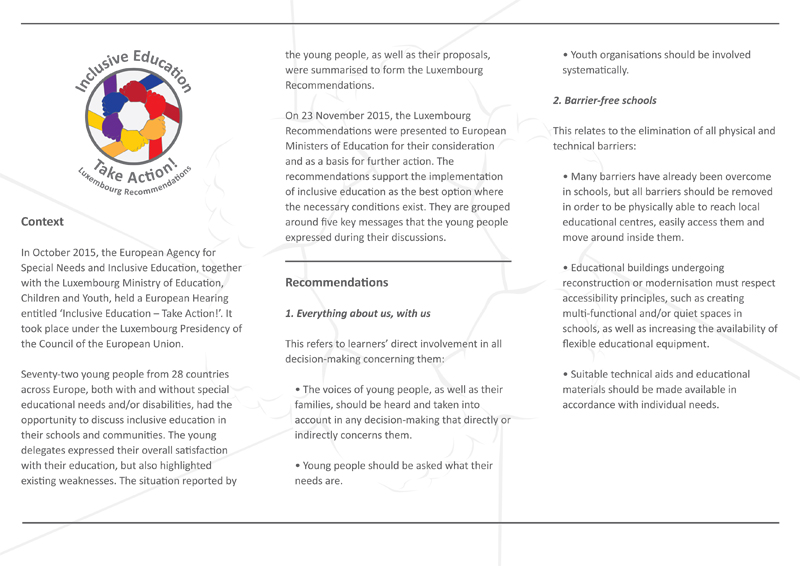Nearly 1 in 4 Scottish school pupils have additional support needs, says new report.
In March 2015, the annual report to Parliament on the Education (Additional Support for Learning) (Scotland) Act was published.
The report, which is the fifth and final in a series of statutory reports on the implementation of the legislation, highlights some key statistics across Scotland in relation to additional support for learning. These include:
- 23% of pupils in Scottish schools are identified as having additional support needs, representing a 2% increase on last year’s figure;
- 95% of pupils with additional support needs are being educated in mainstream school, making up 22% of the mainstream population;
- Expenditure on additional support needs has increased by £24 million since 2014;
- Pupils with additional support needs have slightly poorer attendance (92%) than children with no additional needs with (94%), although this has improved since 2010/2011;
- Children with additional support needs are still found to be significantly more likely to be excluded than children without. This is likely to be linked to the proportions of children who have social, emotional and behavioural difficulties;
- Pupils with additional support needs are achieving well at national qualifications levels 1–4 but less well that their peers without additional support needs at level 5–7. This has been and continues to be an improving picture.
The report highlights major developments relating to support for children and young people with additional support needs in education that have taken place. In particular, mention is given to the raising attainment agenda and the National Improvement Framework which both aim to ensure that all children, including those with additional support needs, are able to reach their full potential in school.
The report also highlights the extension of children’s rights through the Education (Scotland) Act 2016. This Act gives children over the age of 12 many of the same rights as their parents/carers (in terms of asking for their additional support needs to be identified and met) and to ensure their voices are heard in decisions that affect them.
Other work celebrated includes the establishment of a new network of young Inclusion Ambassadors. Two of the Ambassadors represented Scotland at the European Hearing in Luxembourg in October 2015.
Focusing specifically on the topic of mental health, the report points to both factual and anecdotal evidence of increases in the number of pupils experiencing mental health difficulties and highlights the wealth of good practice underway in schools to address these concerns. It includes 12 case studies where schools have successfully addressed mental health issues.
